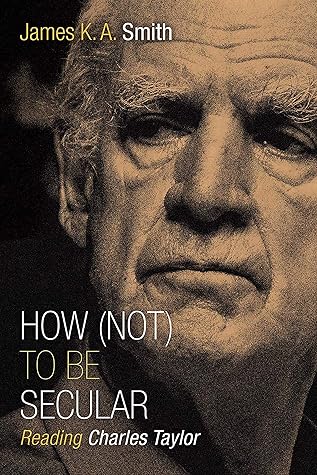More on this book
Community
Kindle Notes & Highlights
Read between
May 7 - June 11, 2022
And I’m looking through the glass Where the light bends at the cracks And I’m screaming at the top of my lungs Pretending the echoes belong to someone — Someone I used to know.
because I think it matters — and matters especially for those believers who are trying to not only remain faithful in a secular age but also bear witness to the divine for a secular age.
our “secular” age is messier than many would lead us to believe; that transcendence and immanence bleed into one another; that faith is pretty much unthinkable, but abandonment to the abyss is even more so; and that they need to forge meaning and significance in this “secular” space rather than embracing modes of resentful escape from
who have forged lives of significance that are nonetheless haunted by the ghosts of a secular age.
At the same time, Taylor’s account should also serve as a wake-up call for the church, functioning as a mirror to help us see how we have come to inhabit our secular age.
Taylor is not only interested in understanding how “the secular” emerged; he is also an acute observer of how we’re all secular now. The secular touches everything. It not only makes unbelief possible; it also changes belief — it impinges upon Christianity (and all religious communities).
Taylor’s account also diagnoses the roots and extent of Christianity’s assimilation — and hints at how ...
This highlight has been truncated due to consecutive passage length restrictions.
Pascal knew that Montaigne was cheating: to most humans, curiosity about higher things comes naturally, it’s indifference to them that must be learned.
Where should we look for the “thin places” that still seem haunted by transcendence?
Confident “new atheists,” for example, delineate where we are with a new bravado. Employing a kind of intellectual colonialism, new atheist cartographers rename entire regions of our experience and annex them to natural science and empirical explanation, flattening the world by disenchantment. (Graveyards of the gods are always a highlight of this tour.) At the same time — and sometimes as a reaction — various fundamentalisms seem intent on selling us maps to buried treasure, pulling out yellowed parchments and trying to convince us that these dated maps tell us the truth about ourselves,
...more
existential vertigo.
“secular age” — this pluralized, pressurized moment in which we find ourselves, where believers are beset by doubt and doubters, every once in a while, find themselves tempted by belief.
On the other hand, even as faith endures in our secular age, believing doesn’t come easy.
If our only guides were new atheists or religious fundamentalists, we would never know that this vast, contested terrain even existed, even though most of us live in this space every day.
“makes sense” of our situation not by didactically explaining it, and certainly not by explaining it away, but by giving us the words to name what we’ve felt.
How do we recognize and affirm the difficulty of belief?
Barnes shows an interest in conversions to atheism and agnosticism, querying his family and friends regarding when and how they lost their faith (not unlike new evangelical friends who are interested in when I became a Christian — by which they mean, date and time, please).
Walker Percy, for example, welcomed the disestablishment of Christendom. Writing to his lifelong friend Shelby Foote, Percy mused that “Christendom no longer can or even should call the tune. If Christians believe in the kingdom, that’s their business, but they should realize that the world has by and large turned away. There is no longer such a thing as Christendom, and as Kierkegaard said, maybe it’s just as well.”13 Twenty years later he would repeat the same theme, effectively praising “the secular” as described by Taylor: “the present age,” he surmised, “is better than Christendom. In the
...more


